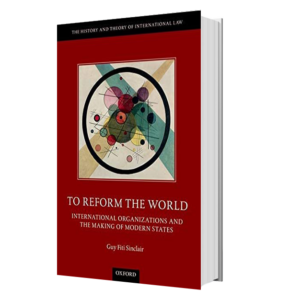Guy Fiti Sinclair

This book examines how international organizations have expanded their powers over time without formally amending their founding treaties. It argues that this expansion has been undertaken and rationalized as necessary to a process of making modern states on a broadly Western model; and that international law has played a central role in that process. Adopting an interdisciplinary sociolegal approach, it supports this claim through detailed investigations of historical episodes involving three very different organizations: the beginnings of technical assistance in the International Labour Organization from the 1920s until the end of World War II; the emergence of United Nations peacekeeping in the 1950s and early 1960s; and the World Bank’s “turn to governance,” which reached an apotheosis in the 1990s. The book draws on a wide range of original institutional and archival materials, bringing to light little-known aspects of each organization’s activities, identifying continuities in the ideas and practices of international governance across the twentieth century, and speaking to a range of pressing theoretical questions in present-day international law and international relations. In tracing the interaction of legal, moral, and expert modes of authority exercised by each organization, the book illuminates the intellectual history of international organizations law and shows how analogies to constitutional and administrative law have acquired an enduring potency in international law.


